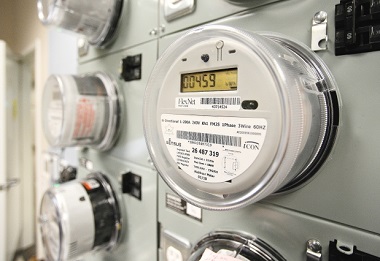B.C. offers compromise for homeowners who opt out on smart meters
 The B.C. government has backed down from its long-held policy that homeowners must have smart meters, saying it is now willing to offer a compromise to the estimated 60,000 people who have held out against the program.
The B.C. government has backed down from its long-held policy that homeowners must have smart meters, saying it is now willing to offer a compromise to the estimated 60,000 people who have held out against the program.“We don’t want to force people to have a smart meter if they really don’t want one,” Energy Minister Bill Bennett announced Thursday.
“It’s not our intention to offend people or bully people.”
Bennett said BC Hydro is now considering an option where it would install digital meters that don’t transmit any radio signals. He said this would be for those customers who have expressed significant concerns about the radio signal emitted by the meters.
But Bennett was clear the change in direction does not mean he now believes there’s a legitimate issue.
“Every single bit of scientific research that I’ve seen would indicate there’s absolutely no problem here,” he said.
Bennett added that people who wish to get a radio-free smart meter will likely have to pay an extra fee to have the meter modified, and will also likely have to pay on a regular basis to have someone manually conduct meter readings.
“The principle we’re talking about here, and we want people to think about, is whether or not the 96 per cent of the people who have taken a smart meter should actually end up having to pay for that extra cost, and we think they probably don’t want to,” he said, adding he is not yet sure how much Hydro would charge those who want to opt out.
New Democratic Party energy critic John Horgan said he supports an opt-out program for smart meters, and has no problem making people pay if they want the special non-transmitting meter.
But he said that instead of allowing BC Hydro to set the fee on its own, it should be up to the B.C. Utilities Commission, which can independently determine exactly what additional costs would accompany the opt-outs.
“I think that’s the safest way to go. It will avoid the inevitable controversy that will come when Hydro sets the number for what the cost will be for rate payers,” he said.
“To have BC Hydro say it’s ‘x’ I think will give little comfort to those who are opposed to smart meters.”
BC Hydro spokeswoman Cindy Verschoor said 96 per cent of smart meters have now been installed across the province.
She said that leaves about 60,000 customers who rejected the meter during an initial attempt at installation.
Verschoor said Hydro does not know how much it will cost to allow people to opt out. She added the opt-out program would likely also be offered to those who already have a smart meter installed in their homes, and no longer want a meter that transmits a radio signal.
You can return to the main Market News page, or press the Back button on your browser.

